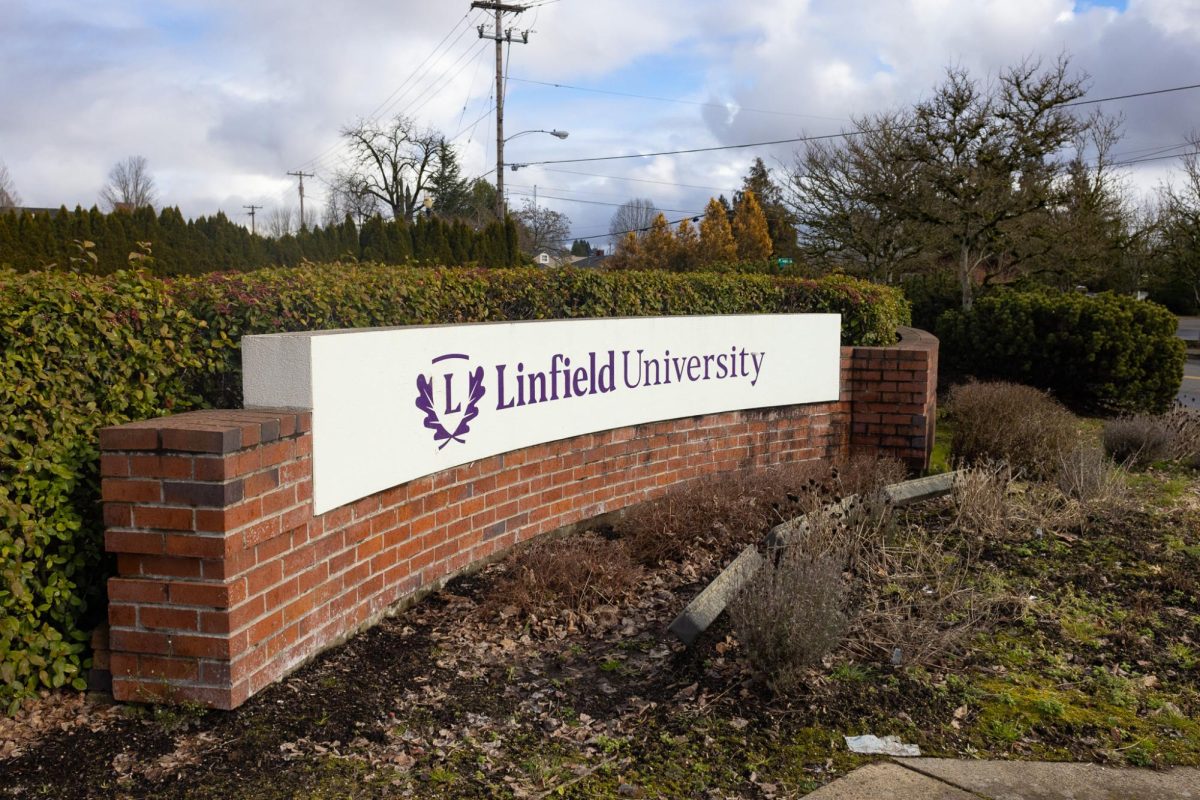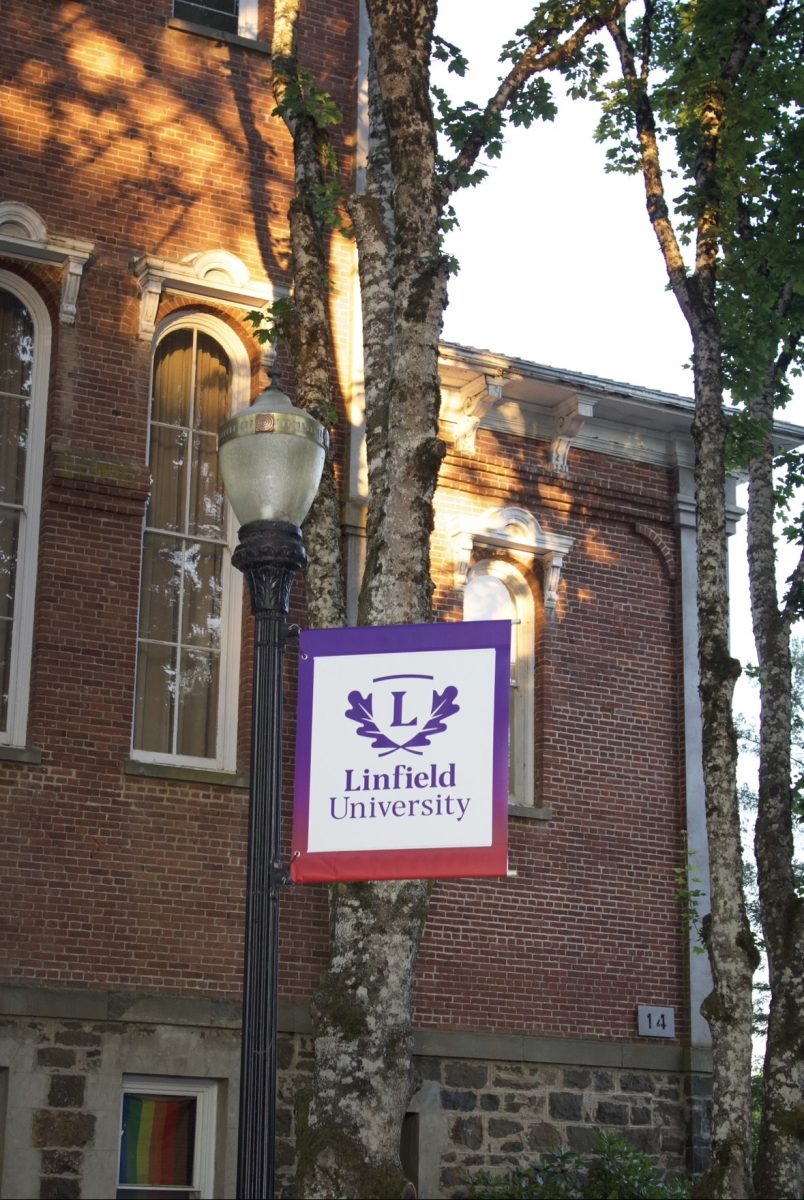Rumors about Linfield’s Medical Clemency Program have been flying around campus within the last few weeks. Contrary to what students have heard, Medical Clemency has not been terminated or altered from previous years.
In fact, the program is still being used and to great effect. For one student, this statement couldn’t be any truer.
Because of the sensitivity of the issue, the student agreed to share her story but wished to remain anonymous.
—
The night started out like any other weekend for many Linfield students. However, for this freshman, a turn for the worse landed her in the hospital after a night of heavy drinking, Feb. 22.
After consuming several drinks at an off-campus residence, the student made her way to the fraternities where a few concerned students noticed her health deteriorating as the night progressed. As they attempted to take her home, she began to vomit.
That’s when a few sober friends were called to assist. The small group managed to get the student to her dorm room, but her vomiting was becoming more violent.
The student’s friends alerted the residence adviser of the situation, claiming Medical Clemency. From there, the typical protocol was followed with the RA calling for the Area Director and officers from College Public Safety.
Even so, the student was having a difficult time breathing so the RA called 911.
The medics transported the student to the local hospital. From there, her lungs had to be suctioned out to clear them of the vomit and a breathing tube inserted. She was sedated the rest of the night with her arms restrained to prevent her from pulling the tube out in her sleep.
She woke up the next morning with no recollection of what happened from the time she left the off-campus residence.
“I was drinking too carelessly that night. I won’t ever do it again,” she said. “The doctor said I would have died if someone hadn’t called 911.”
Her Blood Alcohol Level was .3.
Since that night, the student has met with Jeff Mackay, associate dean of students, regarding the situation.
“[Mackay] was really understanding. He didn’t make me feel uncomfortable talking about it,” she said.
As a follow up, the student has to attend one free alcohol counseling session through the school.
“People think this situation can’t happen to them, but it can. It’s really scary to think someone could die because they are too afraid to call for Medical Clemency,” she said.
—
Some rumors that students have heard is that CPS is determining Medical Clemency on a case by case basis and that police officers are handing out MIPs every time.
These statements are false.
“When a Medical Clemency is called both an AD and CPS officer will respond to assess the situation. If either staff member feels that an ambulance is needed then one is called. Once EMTs arrive, they are in charge of the process and will make a medical determination if the student needs to be transported, Mackay explained.
“If a student is not transported there is no ambulance charge. There are Medical Clemency cases where we do not call an ambulance and some cases where we call an ambulance and the EMTs do not think a transport is necessary. Once the medical emergency is over the Dean of Students Office follows up with the students involved as per the Medical Clemency Policy.”
According to the policy, which is outlined in the Student Handbook, any individual who claims Medical Clemency, whether for themselves or a friend, will meet with the appropriate school officials to discuss the incident, but will not be sent through the college’s conduct review process.
The policy states that students who claim Medical Clemency must “(1) participate in a referral with the Student Health, Counseling, or Health Promotion Office, and (2) comply with any possible recommendations set forth by that Office. If the recipient of medical attention does not comply with provisions one and two, then he or she will be sent through the normal conduct review process. (3) …students with multiple Medical Clemencies may be asked to seek a professional evaluation regarding their alcohol and/or drug use.”
Mackay also added that Medical Clemency does not take effect if an RA, AD or CPS officer finds a student who is visibly under the influence and has not already claimed Medical Clemency.
As for the police department’s involvement, Rebecca Wale, director of CPS, said that “McMinnville Police typically respond to calls requesting medical assistance. They make that decision based on availability of units. The police respond with medics to prevent violence.”
This factor has left many students feeling hesitant about calling Medical Clemency for fear of receiving a MIP.
“Linfield College works collaboratively with [the McMinnville Police Department] to improve emergency response times and reduce crime. [The police department] has jurisdiction on the Linfield campus. It is at their discretion if they cite minors in possession of alcohol,” Wale said.
Of the six Medical Clemencies claimed this school year so far, only two students received MIPs.
“The college is concerned about the safety of students, and high risk drinking is a concern at Linfield and most other colleges and universities. We hope that students would put the well-being of their fellow students above a possible MIP, Mackay said.
“We try to create a community in which community members look out for one another, and if a student is in need of medical attention, students would not hesitate to contact an RA, AD or CPS officer.”
Senior Nic Miles, president of the Associated Students of Linfield College, sent a campus-wide email Feb. 24 in response to some of the circulating rumors. He encouraged students to voice their concerns regarding the relationship between CPS and students.
He took these responses to Mackay and Wale.
“I wanted to get feedback and summarize that dialogue. There is a big lack of respect between a certain population of students and CPS, Miles said.
“Students who have positive interactions with CPS will continue having those interactions. Those with bad interactions are the most vocal about a bad run-in.”
Miles said his conversations with the administration went well.
“They are invested in our safety and want to fix this issue, he said.
“CPS is not a policy maker or enforcer. I think students are confusing the roles and duties of CPS and the Office of Student Affairs.”
Miles is planning to host a town hall meeting for student leaders across campus and administration to attend in order to get a better idea of the issues at hand, he said
The meeting is tentatively planned for March 18.
Jessica Prokop
Editor-in-chief
Jessica Prokop can be reached at
[email protected].
Categories:
Medical Clemency rumors across campus prove to be false
March 10, 2013
More to Discover







Septembre Russell • Mar 15, 2013 at 7:54 pm
Very important to dispel the rumors.
And very nicely written, too.